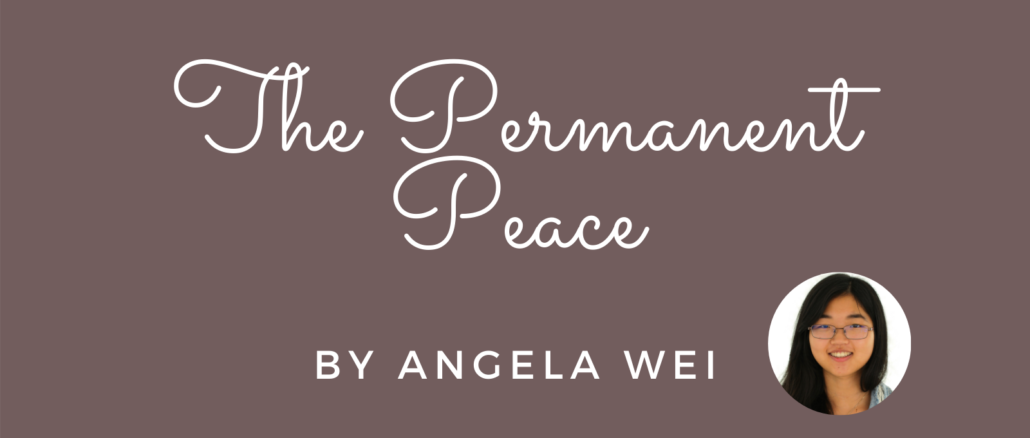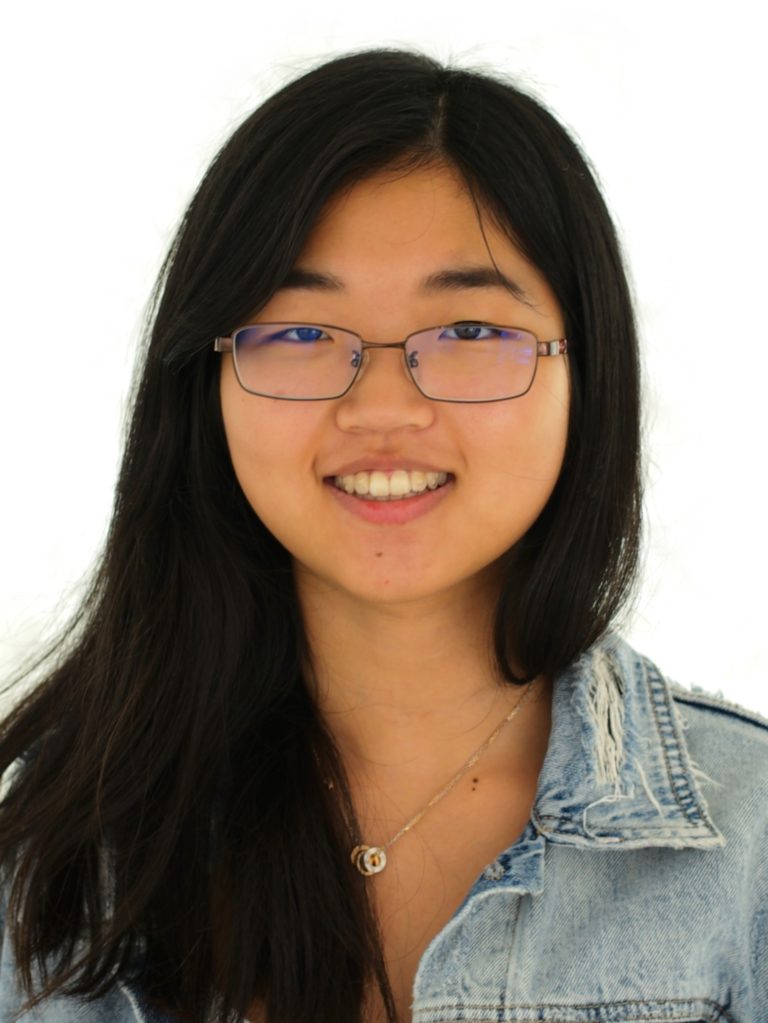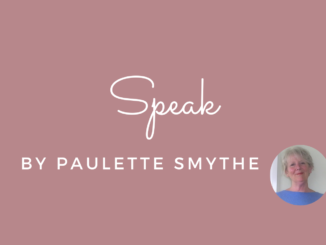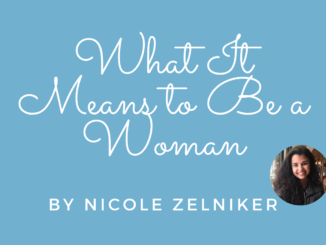
“I’m gay,” I proclaimed to a sea of strange, blank faces. The word hung proud and uncertain, in the air just as out of place as I was, in this place and with these people, my new form and friends. Their chattering stopped dead, and a cold silence flooded the room. Hope hovered precariously on my tongue. Frozen, I stared at my dormmates, their shining, distant eyes fixed on mine. I swallowed.
“So, do you use the pronouns ‘he/him’ then?” one girl asked, out of curiosity.
The room warmed again as it erupted in a chorus of “no’s” and “of course not’s.” Alive again, I shook my head, laughing. She waved her hands in innocent protest, saying, “I’m sorry! I’m sorry, I didn’t know,” and just as quickly as it had stopped, the conversation started up again, with as much energy as it had before. Several people asked a few more innocuous questions, and soon, the matter fell back into indifference. I let out a sigh. I’d never put on that word so plainly before that day in eighth grade, and my dormmates’ acceptance relieved me.
The word had been the product, a reluctant peace, from years of turmoil, which began in the summer of sixth grade, when I first began questioning my sexuality. Then, I labelled myself bisexual: “60% gay, 40% straight,” I wrote. As I grew older, however, my sexuality evolved with me. “Bisexual” no longer felt right – it was too soft, too broad – but neither did “lesbian,” which felt stiff and unyielding. Still, I craved the comfort of a label. With no other choice, I went to war against the words.
Each word struggled violently as I tried to pin it down, and just as I thought I had caught one of them as my own, it would squirm out from underneath me. It was exhausting, and each battle only seemed to drag me further away from victory. I would lie on my bed, at two or three in the morning, watching the cold flickering of my ceiling light. Its edges cast gray and fuzzy shadows onto the walls while my head swarmed with empty and busy thoughts. How could I live and not know whom I love? Who was I? I hated that I had no sure answer, that no one could tell me whether I was right or wrong, that I was a math equation with too many variables. Furthermore, I thought that, just maybe, solving out my sexuality would do away with all my other insecurities as well. As a result, I poured so much of myself into grappling with it that the war slowly consumed everything in a cloud of fatigue and insecurity.
Eventually, time whittled my confusion away into clarity. I discovered that “gay” suited my identity the best, because I began accepting the word’s inherent imperfections. No word, I began to realize, would ever truly “fix” me. So, on that day in eighth grade, when I stepped fully into the role, the word tumbled naturally from my lips. And there it was – I had found it – finally, something lasting. I had grasped at all the straws of my experiences with love and crushes and tied them up neatly, like a bouquet, with one word. Thus, I emerged victorious from that war. I hadn’t beat the words to death, like I thought I would; rather, I had embraced them and all their fluidity. It was only a truce, though; at the time, the word did not fit as perfectly as it does now. Still, the act of deciding lent some assurance.
Soon afterward, however, that same comforting decision morphed into a vehicle for anxiety, plunging me once again into uncertainty. It wasn’t because of any social repercussions: my new school had embraced my sexuality as well as it could. No – it was because I feared its implications. My life had set me up to be a perfect doll of a daughter, with good grades and “talent” and a sensitive temperament. As a child, I was happy and undisruptive. How could I not be? My parents had sacrificed too much to put me on the golden-bricked path of Ivy League colleges and marrying and having children and earning money. In me, they had planted the Chinese Dream – which was to be successful in America – and being an American citizen had already given me a head start. If I should deviate from this path, I thought, I would be a disappointment and a failure, and being gay was already too many steps in the wrong direction.
My mother’s behavior only confirmed my beliefs. I had come out to her with a straightforward “I’m gay” on my thirteenth birthday, and she had received it well, with an honest conversation about how I should wait until college, explore my sexuality, and then decide for good. Her response had been the best I could have hoped for. Since then, however, she has refused to accept it. Almost every time we talked, she would ask me about which boys I liked at Groton, when I was going to get a boyfriend, and which kind of man I wanted to marry. Every time she confronted me with a question, I shut down. I knew that when she gave birth to me, my girlhood must have promised her a close mother-daughter relationship, and, so far, in no way could I have fulfilled her expectations. Because I’ve always sidestepped her questions about boys, I have struggled to be the warm, open, easygoing daughter she has surely always wanted. Yet another step toward failure and disappointment, I thought, another step toward stepping outside of that golden path forever.
Gradually, however, I saw that venturing beyond my “predestined” path did not represent failure; instead, it represented freedom. Because I have strayed from traditional conventions of love, fate urges me to seek a different direction. Like Pilate in Song of Solomon, I must “travel crooked streets and aimless goat paths, arriving sometimes at profundity, other times at the revelations of a three-year-old,” (Morrison, 251) in a “fresh, if common, pursuit” of love. This pursuit, although lonely and chaotic at times, will allow me to decipher the world’s truths for myself. In seeking these truths without norms or standards, I will live authentically, and most importantly, freely.
Then I realized that maybe, just maybe, the golden path had never existed in the first place: it was always a pipe dream, built from obsolescence. No one had ever walked its full length because, nowadays, it is impossible; I had only tricked myself into believing that I could and that I should. After all, my parents had, through exposing me to modern American ideals, fashioned a new, multicultural child. I was born in America and raised in China at an international school – already, my experiences have differed so much from theirs or their parents’. As the world has become more accepting and diverse, so have its children. Now, it is the older generations’ job to catch up, and not ours to slow down.
This epiphany allowed me to begin finding joy in my sexuality. While my friends bore the brunt of hookup culture – the imbalanced power dynamics, the blindsiding, the rigid social norms – I could explore my sexuality in peace. Because I was gay, I lacked the need to define my relationships, to categorize them neatly into one box or another. For me, love could blossom unrestrained into the strange, fickle, and empowering creature that it is. Furthermore, now that the war has ended, being gay has cemented into a cornerstone of my identity, where an entire community resides. I know this community will, in time, support me through all the small or uncertain streets. In the end, I love this word of mine; although it has brought me despair, it has and will grant me unequivocal joy.
But even my despair was not for nothing: my years of turmoil forced me to confront myself, and now, I am capable of self-exploration. Identity, especially as a teenager, is a monstrous thing, a multifaceted infinity of decisions and desires. When I realized this back in sixth grade, I began questioning my identity’s own tumultuous whims, grasping at the markers which formed my selfhood. In this struggle, I perceived the lines between who I really was and who I merely wanted to be, between what I thought I knew and what was truth. I crossed and left behind borders of tradition and expectations, which had imprisoned me all this time. Those years stumbling from one word to the next, rattling the bars of my mental prison, have transformed me into a confident, opinionated person. “Gay” for me evolved from a troubling word to a reluctant truce to a permanent peace, and my wounds from the war have faded until almost unrecognizable. Nevertheless, I am still imperfect, still doubt myself, still fear, still worry. Now, though, I know how to wrestle with my own infinite identity – and I was never as intimidating as I seemed.
Angela Wei is a senior editor for The Grotonian, a literature and art magazine, and the creative director of Circle Voice, a student newspaper. An alumna of Iowa Young Writers’ Studio, Angela is a student writer at Groton School in Massachusetts. She has won various regional awards for her visual art, and her writing has appeared in numerous journals, including Typishly, The Nasiona, Five South, and Cathexis Northwest Press. Angela enjoys baking, reading, and playing guitar, bass and piano. She lives in California.



